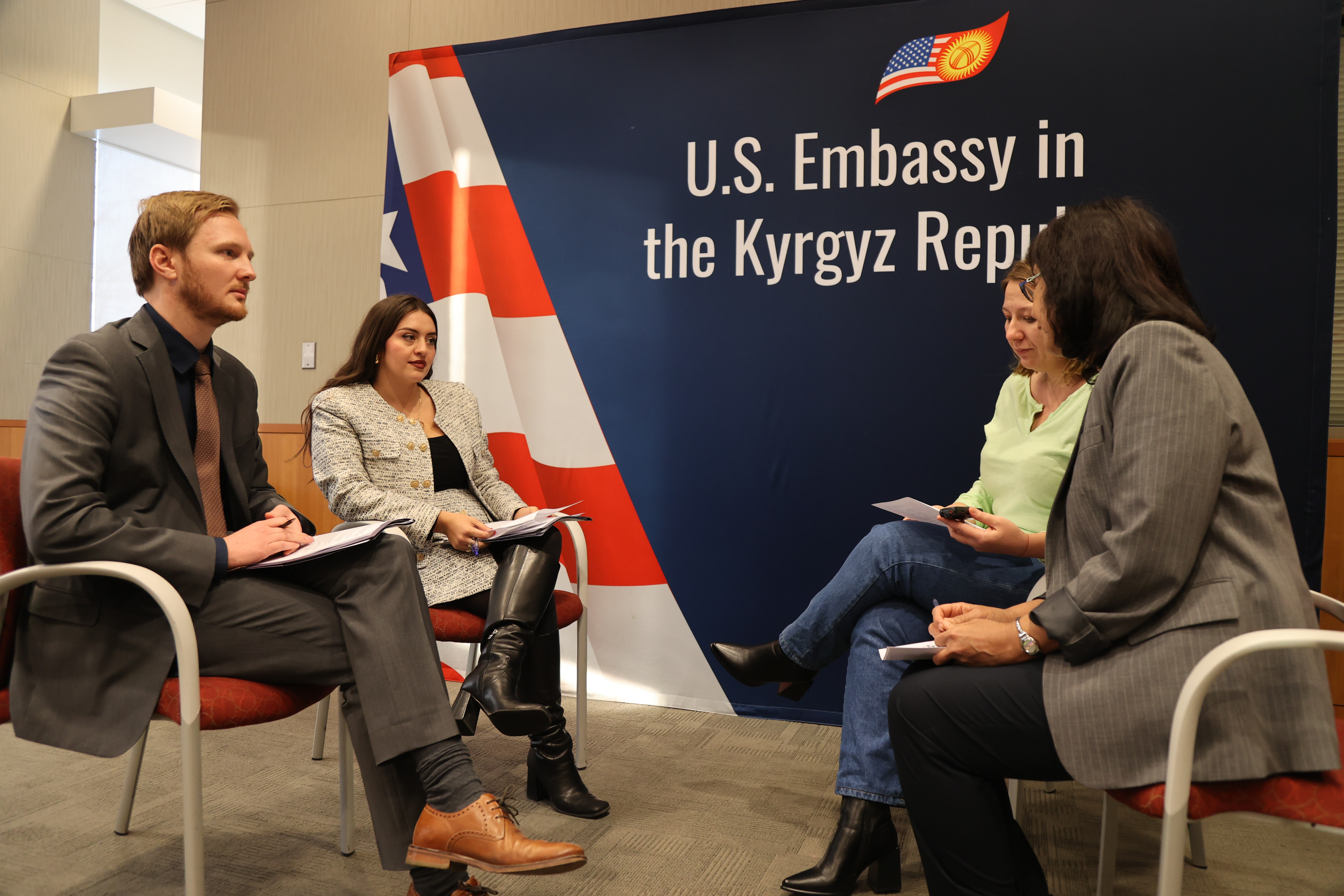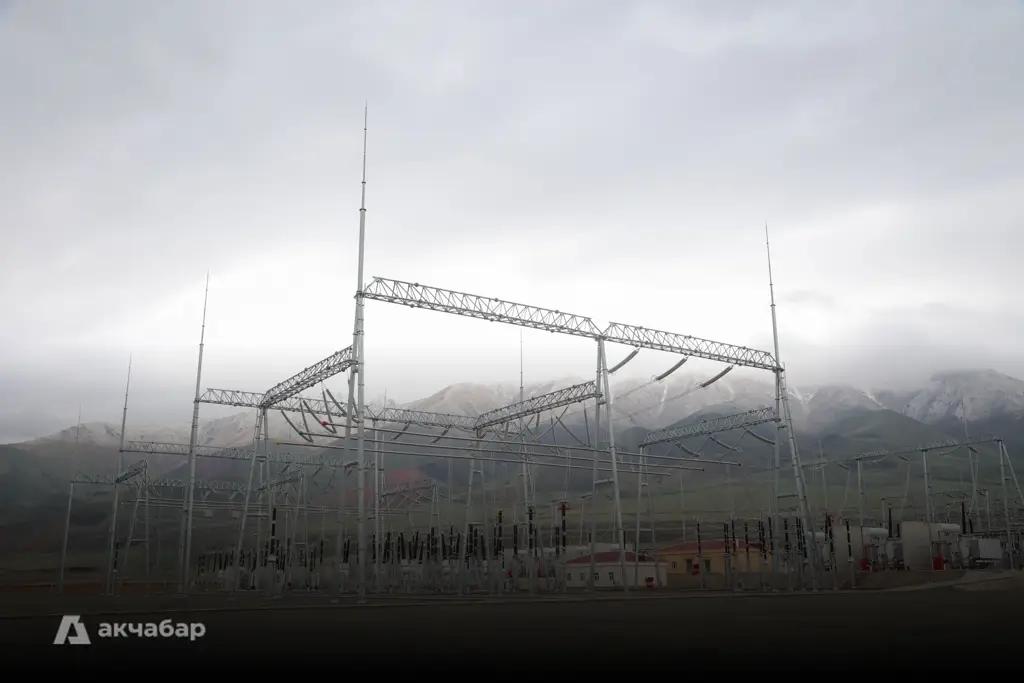
Published
12/25/2024, 10:01The development of franchising in Kyrgyzstan is opening new opportunities for local businesses, particularly in collaboration with American companies. The Akchabar editorial team spoke with Andrew Glass, a representative of the U.S. Commercial Service, and Jacqueline Menchaca, an Economic and Commercial Officer at the U.S. Embassy in Kyrgyzstan to explore why this business model is crucial for the economy, which brands could enter the Kyrgyz market and how to improve the investment climate.
A.G.: — Thank you for the invitation. I represent the U.S. Commercial Service. Our office is located in Almaty, but this is my first time in Bishkek. It’s a wonderful opportunity for me to get acquainted with the Kyrgyz business community.
J.M.: — Hello! I handle matters of commercial cooperation at the U.S. Embassy in Kyrgyzstan.

A.G.: — We organized the seminar to introduce Kyrgyz entrepreneurs to the basics of franchising and its benefits. We discussed what a franchise is, the requirements that need to be met and how to adapt this business model to the local market.
We believe that such initiatives are vital for strengthening ties between our countries, fostering economic growth both in Kyrgyzstan and the United States. These projects also play a crucial role in establishing sustainable partnerships between local businesses and American companies.
A.G.: — Franchising is a powerful tool that opens up opportunities for the exchange of not only business models but also cultural values. American companies are showing increasing interest in Central Asia, and Kyrgyzstan stands out among other countries in the region due to its potential.
The United States views the Kyrgyz market as a promising destination, where the high level of enthusiasm and expertise in the business sector creates a favorable foundation for collaboration. Central Asia as a whole is an attractive region for American enterprises, offering numerous opportunities for growth and development.
It is important for us to build mutually beneficial economic partnerships that strengthen not only business but also cultural ties, fostering sustainable growth and bringing our countries closer together.
J.M.: — We see significant potential in the food and beverage sector. Brands like KFC, Papa John’s, Coca-Cola and Nathan's Hot Dogs are excellent examples of success. Additionally, the younger generation is drawn to American products, such as fashion brands like Crocs and New Balance, which are already available in the market but have yet to establish their own stores here.
Tourism, the hospitality industry and the IT sector are other areas where franchising has significant potential for development. Kyrgyzstan boasts unique natural resources, such as Issyk-Kul and Son-Kul lakes, making it an attractive tourist destination. Developing international-level hospitality can be a crucial step in strengthening the tourism industry.
The IT sector is a promising area, showcasing significant potential for growth and innovation. Additionally, the mining industry holds considerable potential and we are actively working to attract the attention of American companies to this field.
J.M.: — Yes, we showcased a number of American franchises, including Cinnabon and other well-known brands, most of which are focused on the food sector.
We encourage Kyrgyz entrepreneurs to establish connections with representatives of American franchises already operating in Almaty to learn from their experience. For instance, brands like Starbucks and McDonald's already have an understanding of the Central Asian market and may be interested in entering the Kyrgyz market, as there is already demand for their products.
Almaty is just five hours away from Kyrgyzstan and hosts numerous American franchises. Kyrgyz entrepreneurs should start by establishing connections with these companies to explore their interest in operating in the country and take concrete steps to develop this sector, for instance, in Bishkek or Issyk-Kul.
A.G.: — Kazakhstan has a long history of American investments, which began over 30 years ago in the oil sector with Chevron — the first and largest U.S. investor in the country. This collaboration had a significant impact, paving the way for other American organizations to enter and operate in various sectors in Kazakhstan.
Kazakhstan actively implements regulatory reforms and offers support to foreign investors, making it particularly attractive for American businesses. A stable and predictable investment climate, where the government openly discusses new regulations with the business community, creates favorable conditions for foreign investors.
American companies feel more confident when the rules of the game are consistent and transparent, government policies are stable and legislation provides reliable protection for their interests. Additionally, consulting with businesses before implementing changes ensures stability and encourages a steady inflow of investments into the country.
J.M.: — Kyrgyzstan faces several challenges that need to be addressed to attract foreign investment. Among the key issues are bureaucratic barriers, non-transparent tax legislation and insufficient protection of intellectual property. These difficulties are regularly noted not only by representatives of the American business community but also by local entrepreneurs.
The country needs to enhance transparency, particularly in the tax sphere to create a favorable investment climate. The unpredictability of tax regulations often forces investors to move their businesses to neighboring countries like Kazakhstan, where the conditions are more stable and understandable.
Another significant issue remains the risk of business expropriation in favor of the state. While we know that Kyrgyzstan is open for business, this must be backed by concrete policy actions aimed at protecting investors' interests and strengthening their confidence.
A.G.: — Absolutely, you are correct that certain conditions are necessary for the successful development of franchising, such as stable consumer demand and adequate purchasing power. Demographic factors, including population growth, are also important, as well as the potential of the specific market sector with which companies plan to collaborate.
At the franchising event, I noticed a strong interest and high-quality potential partners. This indicates that there are indeed opportunities for the development of this sector in Kyrgyzstan.
American companies are paying attention to both economic indicators and the potential of local businesses, specific prospective partners. In this regard, I believe that the Kyrgyz market represents a promising platform for the development of franchises and I saw many highly qualified potential partners at the seminar.
J.M.: — That's a great question. From 1991 to 2023, direct foreign investment from the U.S. into Kyrgyzstan amounted to 66 million USD. American businesses are actively operating in Central Asia. In the private sector, over 137 projects have been implemented in collaboration with 92 American companies, creating thousands of jobs.
Since 2018, USAID has partnered with 120 local companies, creating over 19,000 new jobs. These outcomes are linked not only to direct investments but also to the provision of equipment and training programs for local businesses. This effort benefits both American companies and the local business community.
If favorable conditions are created in Kyrgyzstan, such as simplifying bureaucratic procedures, improving tax legislation and protecting investors, the potential for American investments in the country could significantly increase.
— Thank you for the conversation.
A.G.: — Thank you for paying attention to this topic. I am confident that Kyrgyzstan has immense potential and American businesses are ready to contribute to its development.



